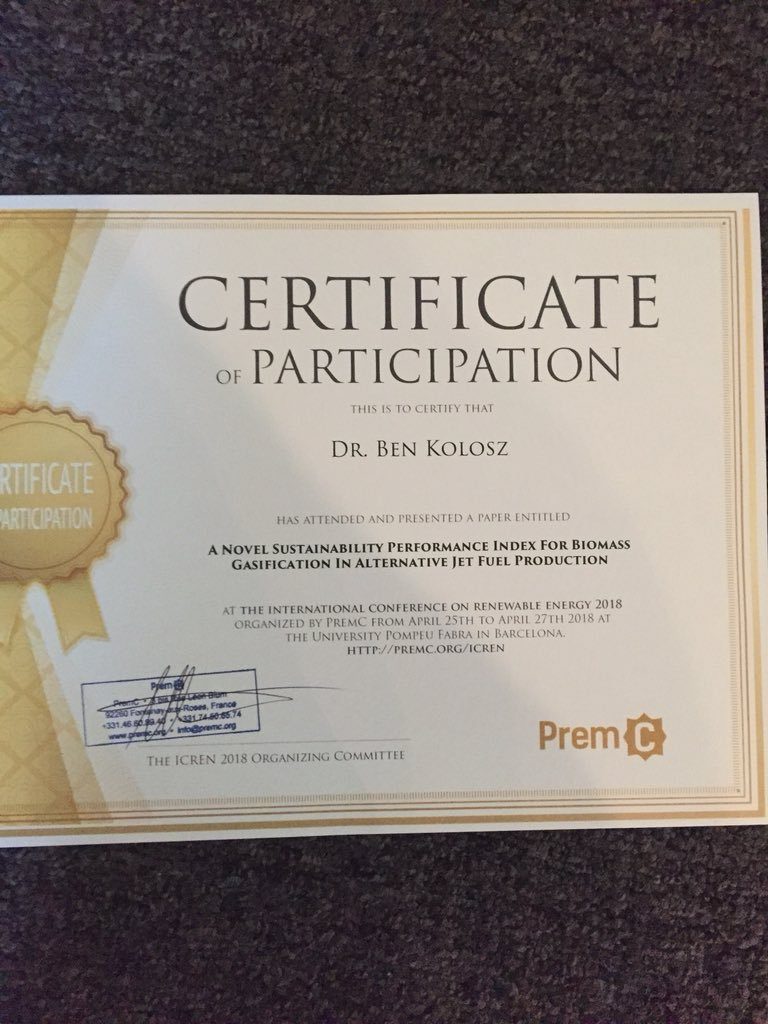
Dr Ben Kolosz recently attended the international conference on renewable energy. He delivered the designs for a new type of performance management framework for gasification using a unique fuzzy logic approach.
Abstract:
A novel sustainability performance index has been developed for assessing biomass waste performance during gasification of syngas for jet fuel production. Catalytic gasification of waste biomass could be an ideal sustainable production route to syngas, which through Fischer–Tropsch is upgraded into alternative jet fuels. However, a significant amount of variables affect the gasification process, resulting in possible inefficiencies. Firstly, the index consider the key gases, including CO, CO2 and H2, along with water and residual hydrocarbons and tars, arising from the array of reactions occurring from incomplete gasification. Secondly, it identify patterns of overall product composition which is tuned through gasification conditions including incorporation of catalytic materials, which can be typically utilised to reform the residual aromatic hydrocarbons including a tar fraction, to increase gaseous product yield. Performance between varying biomass streams under different gasifier configurations is also highly variable. Thirdly, the index uses a hybrid methodology which include a combination of system dynamics, uncertainty methods and lifecycle assessment, our performance criteria are tuned to specific biomass types as well as assessing the configuration of each gasifier type, allowing for a comprehensive sustainability analysis of gasification performance related to jet fuel production.
The empirical results reveal that by considering multiple criteria simultaneously, wood pellet biomass combined with CO2 utilisation offers the best supply of feedstock into the gasifier mainly due to its low ash content and tar formation, as well as providing low lifecycle emissions (up to 85% reduction gCO2e/MJ compared to conventional jet fuel) and cost. In summary, the key contribution of this paper is to propose an emission based systematic evaluation model to help the bioenergy community with ranking a set of competing choice of biomasses in terms of prioritised environmental reporting under a broad range of dimensions including lifecycle emission quotas, economic supply and demand, and energy potentials.
